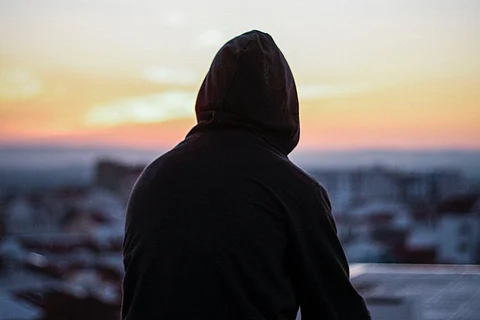

Trigger warning: Homophobia, assault
“Why did you go out?” “Why did you dress up that way?” “What was the need to go out at that time?” – These were the questions my friends asked me, when I confided in them about the homophobic attack I faced in my hometown in 2017. I had gone out to buy a pack of cigarettes early in the morning when I was followed and assaulted by eight men. They touched me inappropriately, hurled homophobic slurs at me, and when I tried to fight back, one guy slapped me. I found myself so helpless at the time and couldn’t process what I had been through.
The next year, on September 6, 2018, the Indian Supreme Court decriminalised consensual sex under section 377 of the Indian Penal Code. This verdict was met with celebration, but over three years on since the historic judgment, homophobic and queer-phobic hate crimes – such as the one I faced – remain commonplace, along with the shame and victim blaming that survivors face.
On 21st October 2020, the body of an elderly trans woman named Sangeetha was found in Coimbatore. She was murdered in cold blood inside of her own house. She was brutally killed, and her body was put inside a plastic drum covered in salt. Neighbors discovered the body after three days of her disappearance. Every other day, we wake up to such incidents, and nobody seems to do much about it, and that's scary. The National Crime Records Bureau has no clear statistics on violence against queer people. The census has no record of the number of queer people in the country.
Following the decriminalisation of homosexuality in India in 2018, I gained the courage to speak about my experience of the homophobic attack publicly. Upon reflection, the decriminalisation seemed inadequate because hate crimes persist.
I never thought that I demanded space. I knew that I was not accepted in my country for my identity. But after what happened to me, it hit me harder, and everything became painfully clear. What baffled me further was the constant invalidation by everyone.
The attack wasn’t the only instance of violence that I faced for my queerness. For most of us, it begins very early on. My own journey of self-exploration began in 2012 when I was 14, and I was experiencing extreme discrimination in school for being gay. I was beginning to understand and dive deeper into my queerness in India, a country where LGBTQIA+ do not have equal rights. The difficulties of growing up queer at a time when homosexuality was punishable with up to 10 years in prison were unfathomable. But as I grew up, I began to articulate my queerness better.
I was very expressive and flamboyant, as people like to say, and I still am. In an effort to impose heteronormativity on me, I was subjected to a constant slew of names and gestures, which made me feel like I didn’t get a chance to grow up as myself. I grew up playing variations of myself to minimise humiliation and prejudice. The suppression I endured throughout school, combined with my experiences of growing up in a small, conservative town without any idea of what queerness could be, took a massive toll on my psyche.
For me, the watershed moment came when I moved to New York City, at the age of 17. I could be my authentic self, but I also got a sense of a much larger, global community. But shortly after moving back to my small hometown in India, I fell victim to the homophobic attack in 2017. The guilt that I was made to experience by everyone after the incident made me feel ashamed of my queerness. Instead of being believed, I was blamed. It took me to a point where every day, I would choose between authenticity and safety before I’d leave my house.
I decided to share my experience because it felt like a liberating path – most people don’t know that something like this still happens. I live with PTSD, and after years of suppressing my true self, I am unclear about which parts of myself are truly me and which parts were created to protect myself. It doesn’t help that most people in India think that these crimes are justified because they are happening with queer and trans people, and hence, can be neglected.
Over the years, I’ve met many queer individuals who have shared their gruesome stories about physical abuse and assault. In many of their cases too, it was assumed by most people that they were ‘asking for it’. While the truth is that there is no justification for any kind of violence, the harsh reality is that the system constantly fails us. Though it is a different time now than a decade ago, the world will never make it easy for people like me. Our potential is still subdued and marred because of incidents like these. I am sharing what happened to me in the dire hope that maybe others who have been victims will also get the confidence to speak up. Because the more brown queer people come out and claim spaces, the safer we’ll make it for other queer people. It is up to us to lift each other up.
Views expressed are author's own.